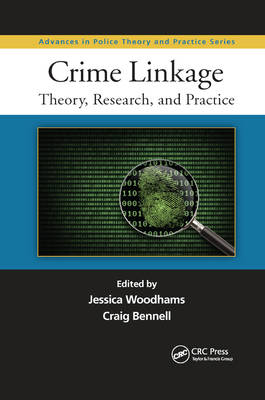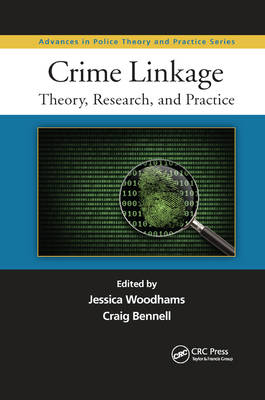
- Retrait gratuit dans votre magasin Club
- 7.000.000 titres dans notre catalogue
- Payer en toute sécurité
- Toujours un magasin près de chez vous
- Retrait gratuit dans votre magasin Club
- 7.000.0000 titres dans notre catalogue
- Payer en toute sécurité
- Toujours un magasin près de chez vous
Crime Linkage
Theory, Research, and Practice
Description
The increasing portrayal of forensic investigative techniques in the popular media--CSI, for example, has resulted in criminals becoming "forensically aware" and more careful about leaving behind physical evidence at a crime scene. This presents law enforcement with a significant problem: how can they detect serial offenders if they cannot rely on physical forensic evidence? One solution comes from psychology. A growing body of research has amassed in the area of behavioral consistency and the detection of serial offenders. A number of innovations are taking place in the field that have important implications for the practice of crime linkage and its use by police and the courts. Crime Linkage: Theory, Research, and Practice assembles this research and discusses its practical use.
Topics include:
- Theoretical explanations for how, when, and why we may (or may not) see similarities in a person's crime scene behavior
- Consistency and distinctiveness in sexual offending
- An overview of crime linkage research conducted to date
- The use of crime linkage in the United Kingdom, South Africa, and the United States
- New directions for research and practice, including linking across crime types to expand the suspect pool
- The range of statistical methods used in research of crime linkage principles
The book represents a collaboration of researchers and practitioners from across the globe who are recognized as experts in the area of behavioral consistency and detection of serial offenders. They provide a comprehensive and informative text on the psychological and criminological theories underpinning crime linkage, how it is used in practice, the challenges practitioners face, and current innovations that will shape the future of crime linkage research and practice.
Spécifications
Parties prenantes
- Editeur:
Contenu
- Nombre de pages :
- 396
- Langue:
- Anglais
- Collection :
Caractéristiques
- EAN:
- 9780367867072
- Date de parution :
- 10-12-19
- Format:
- Livre broché
- Format numérique:
- Trade paperback (VS)
- Dimensions :
- 156 mm x 234 mm
- Poids :
- 580 g

Les avis
Nous publions uniquement les avis qui respectent les conditions requises. Consultez nos conditions pour les avis.





